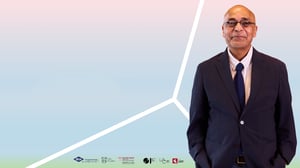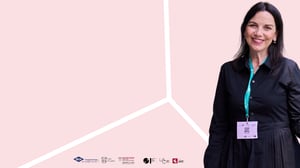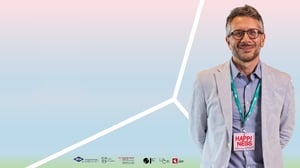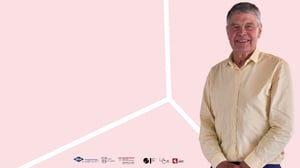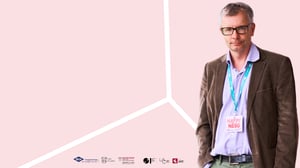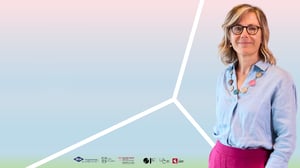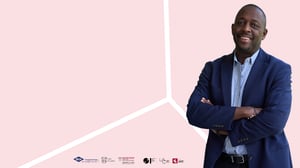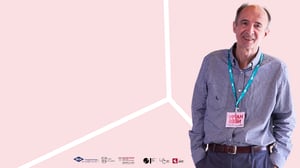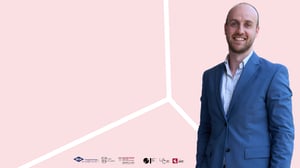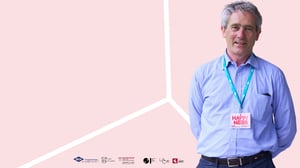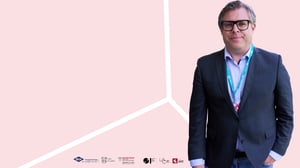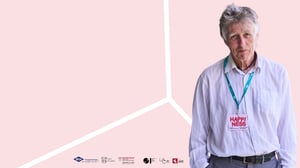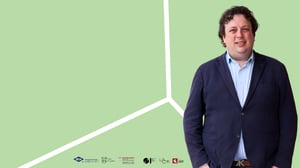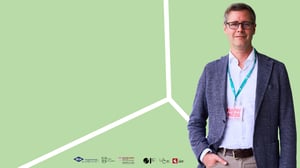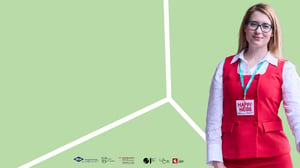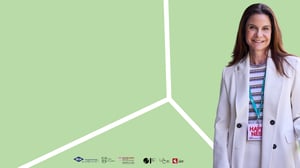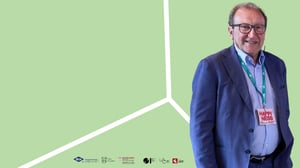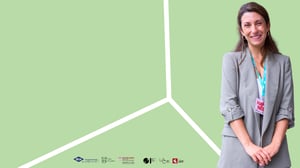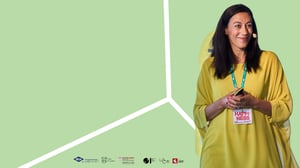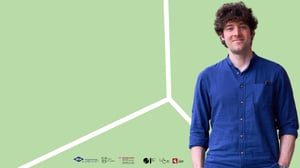Lugano
Happiness Forum
17-18 June 2024
LAC Lugano Art and Culture
Piazza Bernardino Luini 6, Lugano | Sala 1

Prof. K. Viswanath, Harvard University.
Luigi Di Corato, City of Lugano,
Laura Marciano, Harvard University,
Silvia Misiti, IBSA Foundation.
Culture, Science, Policy and Practice of Happiness
The Lugano Happiness Forum is a two-day forum that aims to bring together scholars, policymakers, and experts to explore the intricate mechanisms and underlying principles of human happiness and well-being.
The Lugano Happiness Forum is being organised by the IBSA Foundation for scientific research, the Culture Division of the City of Lugano, and the Harvard Lee Kum Sheung Center for Health and Happiness, Boston, USA.
Partners of the event: USI Univesità della Svizzera italiana, LAC Lugano Arte e Cultura and Lugano Region.
In this forum, we embark on a rigorous journey into the realms of different scientific disciplines and interdisciplinary research, and practices to unravel what shapes and defines the pursuit of happiness in culture, science, policy and practice.
Happiness in Switzerland, including the city of Lugano, can be described as a combination of several factors that contribute to a high quality of life and overall well-being.
Switzerland consistently ranks as one of the happiest countries in the world, and this sentiment is reflected in Lugano. The Lugano Happiness Forum is dedicated to fostering an environment where the latest scientific findings and cutting-edge theories, initiatives, ideas and practices are shared, discussed, and scrutinized by a community of passionate minds committed to advancing our understanding of a happy life.
This Forum serves as a bridge between the academic, scientific, and applied aspects of happiness, including policies, encouraging the exchange of ideas that not only deepen our scholarly insights but also have practical implications for enhancing the well-being of individuals and societies.
With a view to sustainability, the forum will be a ‘Carbon Neutral (ISO 14068-1)’ supported by +O Positive Organizations and the involvement of associations committed to combating food waste, for the whole food preparation and supply part.
Programme
17.06.2024 - Day one
09:00 - 09:20 | Welcoming
Roberto Badaracco, Deputy Mayor of the City of Lugano and Silvia Misiti, Director of IBSA Foundation
09:20 - 09:30 | Opening remarks
K. "Vish" Viswanath, Harvard University
09:30 - 11:00 | Session 1
Decoding happiness: Happiness and Social Well-being in Modern Society
Find out more
11:00 - 11:30 | Coffee Break
11:30 - 13:00 | Session 2
Bridging Bliss: Promising practices in policy making and science translation
Find out more
13:00 - 14:00 | Lunch Break
14:00 - 16:00 | Session 3
Balancing Success and Well-being: Happiness from a corporate perspective
Find out more
16:00 - 16:30 | Coffee Break
16:30 - 18:00 | Session 4
Happiness and science: Navigating the New Frontiers
Find out more
18:00 - 18:30 | Reflections and closing
By Peter Schulz
18.06.2024 - Day two
08:00 - 09:00 | Music and chair yoga
LAC Hall, curated by Irene Bongini, with pianist Ferenc Nemes - Déak
09:00 - 09:30 | Welcoming
Michel Gagnon, Director of LAC Lugano Arte e Cultura, Giovanni Pedrazzini, Dean of the Faculty of Biomedical Sciences at Università della Svizzera italiana and Massimo Boni, Director of Lugano Region.
09:30 - 11:00 | Session 1
Beyond Borders: Measuring Happiness across Countries and Disciplines
Find out more
11:00 - 11:30 | Coffee Break
11:30 - 13:00 | Session 2
Happiness as a movement: Igniting Positive Change
Find out more
13:00 - 14:00 | Lunch Break
14:00 - 15:30 | Session 3
Cultivating well-being: The intersection of happiness and culture
Find out more
15:30 - 16:00 | Coffee Break
16:00 - 17:30 | Session 4
Swiss Happiness: Building a Brighter Future Together
Find out more
17:30 - 18:00 | Session 5
Launch of Harvard Garmin study on Happiness
Find out more
18:00 - 18:30 | Closing remarks for the event
Lugano Happiness Tips and next event in 2026: K. "Vish" Viswanath, Harvard University, Luigi Di Corato, City of Lugano, Silvia Misiti, IBSA Foundation.
Day one
Decoding happiness: Happiness and Social Well-being in Modern Society
This session seeks to describe the multifaceted concepts of happiness, exploring diverse perspectives and definitions that contribute to our understanding of this essential aspect of human experience. The aim is to foster a deeper understanding of happiness that goes beyond conventional definitions and embraces the richness of its cultural, philosophical, and individual dimensions.
In today's fast-paced world, the pursuit of happiness and social wellbeing has become a significant focus for individuals, communities, and policymakers alike. This session aims to explore various strategies and approaches for fostering happiness and enhancing social wellbeing on both personal and societal levels. Also, we delve into the intersection of happiness and equity, exploring how societies can foster environments where everyone has the opportunity to thrive and experience well-being. Happiness is not merely an individual pursuit but deeply intertwined with broader societal structures and systems. Achieving equity, where all individuals have fair access to resources, opportunities, and rights, is essential for sustainable happiness at both individual and societal levels.
Moderator:
K. Viswanath, Harvard University, USA
Bio and Abstract
Speaker:
Julianne Holt-Lunstad, Brigham Young University, USA
Bio and Abstract
K. Viswanath, Harvard University, USA
Bio and Abstract
Speakers’ interviews
Bridging Bliss: Promising practices in policy making and science translation
The session "Bridging Bliss" is dedicated to exploring how insights from happiness research can be effectively translated into policies that enhance well-being. The intersection of policy making, and happiness science offers a unique opportunity to shape societies in ways that prioritize the holistic happiness and fulfillment of individuals.
This session aims to showcase promising practices, challenges encountered, and successful models in integrating happiness research into policy frameworks.
Moderator:
Luigi Di Corato, City of Lugano, Switzerland
Bio and Abstract
Speaker:
John F. Helliwell, Canadian Institute for Advanced Research (CIFAR), Canada
Bio and Abstract
Heikki Hiilamo, Finnish Institute for Health and Welfare
Bio and Abstract
Speakers’ interviews
Balancing Success and Well-being: Happiness from a corporate perspective
This session explores the critical intersection of happiness within the corporate landscape. Leading executives, HR professionals, and experts in organizational well-being come together to discuss strategies, challenges, and the evolving role of corporations in fostering happiness among employees.
The session aims to inspire a shift in corporate culture that prioritizes not only professional success but also the holistic well-being of individuals within the workplace.
Moderator:
Silvia Misiti, IBSA Foundation, Switzerland
Bio and Abstract
Speaker:
Garth Graham, Healthcare and Public Health at Google and YouTube, USA
Bio and Abstract
Mark Setton, Pursuit of Happiness, USA
Bio and Abstract
Leon Brudy, Garmin Health, Germany
Bio and Abstract
Speakers’ interviews
Happiness and science: Navigating the New Frontiers
This session delves into the intersection of well-being and scientific inquiry. It explores the ways in which advancements in science, biology, and technology can contribute to, or sometimes challenge, individual and collective happiness.
Leading experts, researchers, and technologists come together to discuss the opportunities and challenges presented by the digital era and its impact on our pursuit of happiness.
Moderators:
Peter Schulz, USI University, Switzerland
Bio and Abstract
Andrea Alimonti, Institute of Oncology Research (IOR), Switzerland
Bio and Abstract
Speaker:
Christian Montag, Ulm University, Germany
Bio e Abstract
Bjørn Grinde, University of Oslo, Norway
Bio e Abstract
Speakers’ interviews
Day two
Beyond Borders: Measuring happiness across countries and disciplines
This session aims to foster a deeper understanding of how cultural, social, and economic factors intersect with happiness metrics. These distinguished scholars, each with their unique expertise, collectively contribute to the global understanding of happiness, well-being, and the factors that shape a flourishing society, including approaches measuring happiness.
Their research and insights play a crucial role in advancing interdisciplinary discussions and informing policies that aim to enhance the quality of life for individuals and communities worldwide.
Moderator:
K. Viswanath, Harvard University, USA
Bio and Abstract
Speakers:
Martijn Burger, Open University of the Netherlands, Netherlands
Bio and Abstract
Urs Bieri, gfs.bern ag, Switzerland
Bio and Abstract
Speakers’ interviews
Happiness as a movement: Igniting Positive Change
The session brings together influential leaders that have dedicated their work to advancing happiness and well-being on a global scale. The forum session aims to delve into their experiences, strategies, and the impact of their organizations in fostering happiness. They contribute to the field through different avenues, including organizing summits (WOHASU), educational programs (Project Happiness). Each leader emphasizes the importance of collaboration, education, and innovation in the pursuit of individual and collective happiness.
Moderator:
Laura Marciano, Harvard University, USA; IBSA Foundation, Switzerland
Bio and Abstract
Speakers:
Karen Guggenheim, World Happiness Summit (WOHASU), USA
Bio and Abstract
Randy Taran, Project Happiness Global, USA
Bio and Abstract
Speakers’ interviews
Cultivating well-being: The intersection of happiness and culture
This session is a profound exploration of the intricate connections between happiness and culture. It seeks to uncover the diverse ways in which cultural contexts and social dimensions shape perceptions of happiness, influence well-being, and contribute to a sense of purpose and fulfillment.
Moderators:
Silvia Misiti, IBSA Foundation, Switzerland
Bio and Abstract
Luigi Di Corato, City of Lugano, Switzerland
Bio and Abstract
Speakers:
Enzo Grossi, IBSA Foundation, Villa Santa Maria Foundation, Italy
Bio and Abstract
Julia Hotz, Simon & Schuster (Author & Journalist), USA
Bio and Abstract
Speakers’ interviews
Swiss Happiness: Building a Brighter Future Together
This session on the Happiness Initiative in Switzerland aims to gather experts from various sectors to explore strategies for enhancing happiness and well-being across Swiss society. By fostering dialogue and collaboration, this session seeks to lay the foundation for concrete actions that promote a happier and more resilient Switzerland.
Moderator:
Peter Schulz, USI University, Switzerland
Bio and Abstract
Speakers:
Aurélie Litynski, Happitude at work, Switzerland
Bio and Abstract
Laura Marciano, Harvard University, USA; IBSA Foundation, Switzerland
Bio and Abstract
Speakers’ interviews
Launch of Harvard Garmin study on Happiness
Exploring new frontiers in measuring happiness and well-being.
This presentation will launch the Harvard Garmin Happiness Study, which aims to collect daily measures of wellbeing from over 10,000 individuals, matched with high-frequency data on daily activities, health metrics, social interactions, and physical environments. Data will be passively collected from smartphones and Garmin smartwatches on a continuous basis, starting in Switzerland. Using such novel data from smartphones and wearable devices, this study offers a new and unprecedented opportunity to measure subjective wellbeing at scale. This endeavor will thereby shed new light on the dynamics, determinants, and downstream effects of subjective wellbeing in daily life.
Speakers:
Micah Kaats, Harvard Kennedy School, USA
Bio and Abstract
Laura Marciano, Harvard University, USA; IBSA Foundation, Switzerland
Bio and Abstract
Leon Brudy, Garmin Health, Germany
Bio and Abstract
Speakers’ interviews
Lugano Happiness Forum
17-18 June 2024, LAC Lugano Art and Culture
Moderators and Speakers

Bjørn Grinde
Professor Emeritus, University of Oslo, Norway
Bjørn Grinde received his education in natural sciences, psychology, and anthropology from the University of Oslo. He has been a chief scientist at the Norwegian Institute of Public Health and served as a scientist and professor at various universities. An important part of his research has been to understand the process of evolution, particularly how it formed the human brain.
The Biology of Happiness
I use a biological/evolutionary framework to explain what happiness is about.
Briefly, the primary purpose of nervous systems is to direct an animal toward behavior conducive to survival and procreation, and as a rule of thumb, this implies either approach or avoidance.
Evolution added a system of feelings in our distant ancestors perhaps 300 million years ago. Rewards, in the form of positive feelings, were meant to motivate the animals toward behavior useful for the genes (approach), while punishment, in the form of negative feelings, should help the animal avoid harmful events (avoidance). The human brain delivers many types of feelings, anything from love and sweet taste to loneliness and physical pain, but the reward and punishment part of these feelings is delivered by distinct and shared neuronal circuits. Happiness can be construed as the net output of these circuits.
I shall discuss the relevance of this model for the pursuit of happiness.

K. "Vish" Viswanath
Lee Kum Kee Professor of Health Communication, Harvard T. H. Chan School of Public Health (HSPH), Dana-Farber Cancer Institute (DFCI), Director, Center for Translational Health Communication Science, DFCI/HSPH, Director, Harvard Chan India Research Center, Director, Lee Kum Sheung Center for Health and Happiness, Boston, USA
Dr. K. “Vish” Viswanath is Lee Kum Kee Professor of Health Communication in the Department of Social and Behavioral Sciences at the Harvard T. H. Chan School of Public Health (HSPH) and in the McGraw-Patterson Center for Population Sciences at the Dana-Farber Cancer Institute (DFCI). He is also the Faculty Director of the Health Communication Core of the Dana-Farber/Harvard Cancer Center (DF/HCC). Other additional administrative and scientific leadership positions held by Dr. Viswanath include: Director of the Center for Translational Communication Science, DFCI; Director, Harvard Chan India Research Center and Director, Lee Kum Sheung Center for Health and Happiness, Harvard Chan. He is the founding Director of DF/HCC’s Enhancing Communications for Health Outcomes (ECHO) Laboratory. He has also served and continues to serve on several US national committees.
His work so far has documented the relationship between communication inequalities, poverty and health disparities, and knowledge translation to address health disparities. He has written more than 300 journal articles and book chapters and he is the Co-Editor of four books and monographs.
Beyond Individual Happiness: Striving for Collective Well-being in a Digital World
Happiness, as a social movement, has been defined by focusing on practices that make individuals happy and joyful. This focus on individual happiness has found traction through reports from think tanks, non-profit and for-profit organizations, various policies and even products. Most measures of happiness also aim to track and monitor individual happiness. While acknowledging the importance of individual happiness, this talk will argue for a movement that strives for collective well-being – an idea that individual happiness is nested within larger collectives within which individuals experience these positive emotions and feelings. Collective well-being should, in theory, promote happiness of all groups within a community irrespective of their social class, race/ethnicity and other factors. A collective well-being movement should strive to be inclusive and equitable in ensuring that all citizens benefit from policies and practices that promote health in all dimensions: physical, psychological and social.

John F. Helliwell
Vancouver School of Economics at the University of British Columbia, and Distinguished Fellow of the Canadian Institute for Advanced Research, Canada
John F. Helliwell is a Distinguished Fellow of the Canadian Institute for Advanced Research. He is also Professor Emeritus of Economics at the University of British Columbia. He was previously a member of the National Statistics Council 2001-2015, visiting special advisor at the Bank of Canada in 2003-04, visiting research fellow of Merton College, Oxford, in 2003, of St. Catherine’s College, Oxford, in 2001, and Mackenzie King Visiting Professor of Canadian Studies at Harvard in 1991-94.
World Happiness Report 2024: Happiness and Age
World Happiness Report 2024 shows large international differences in the relative happiness of the young and old. In North America the happiness rankings for those under 30 are far lower than for those 60+.
On the other hand, there several countries, often in Central and Eastern Europe, where ranks for the young are far higher than for those over 60. Most of these differences are of recent origin and invite a deeper look. There are now enough years of Gallup World Poll data to separate age and generation. Both matters. Globally, life evaluations are higher by one-quarter point for those born before 1965 than for those born after 1980, subject to large variations from country to country, and with happiness dropping with age for those born after 1980 and rising with age for those born before 1965.

Christian Montag
Molecular Psychology, Institute of Psychology and Education, Ulm University, Ulm, Germany
Prof. Dr. Christian Montag works at the intersection of psychology, neuroscience, behavioral economics, and computer science. Among others, he studies how individual differences in personality are related to well-being. Since 2014 he has been Professor for Molecular Psychology at Ulm University, Ulm, Germany.
On personality and well-being including an affective neuroscience approach to understand life satisfaction
Understanding well-being represents a timeless quest in psychology and related sciences. Much research shows that personality traits such as extraversion and neuroticism are robustly linked to individual differences in self-reported well-being measures such as life satisfaction. Most studies in the field still focus on the investigation of relations between the Big Five of Personality and well-being measures, which without represents a highly relevant area of research. This said, the Big Five have been carved out against a lexical approach and therefore only can describe individual differences in human personality without explaining such differences. Therefore, the present talk will provide a short introduction into Affective Neuroscience Theory and why this evolutionary theory provides a more explanatory approach on why people differ in experiencing varying degrees of well-being.

Julianne Holt-Lunstad
Professor of psychology and neuroscience and director of the Social Connection & Health Lab at Brigham Young University, Utah, USA
Julianne Holt-Lunstad, PhD is a professor of psychology and neuroscience and director of the Social Connection & Health Lab at Brigham Young University. She is also the founding scientific chair and board member for the U.S. Foundation for Social Connection and the Global Initiative on Loneliness and Connection. Her research focuses on the individual and population health effects, biological mechanisms, and effective strategies to mitigate risk and promote protection associated with social connection.
She has given a TED Talk and given expert advice and testimony internationally to many organizations including being the lead scientific editor for a US Surgeon General’s Advisory and Framework for a National Strategy.
Social Connection: A key to happiness may also be vital to society
One of the biggest predictors of happiness is also linked to better overall well-being, health, safety, and prosperity. Social connection is widely considered a fundamental human need essential to individual, community, and society functioning. Yet far too many lack connection, and there are growing concerns of the ramifications. Drawing upon societal trends and interdisciplinary scientific evidence, social connection may be the key to understanding and addressing pressing societal issues and to thriving.

Enzo Grossi
IBSA Foundation, Lugano, Switzerland; Villa Santa Maria Foundation, Tavernerio, Italy; Bracco Foundation, Milan, Italy
Enzo Grossi is a surgeon, gastroenterologist, researcher in the field of Pharmaceutical Medicine, Applied Mathematics and Computational Biology. Over the last 15 years, he has worked extensively in the fields of art, culture and health with a wide range of scientific publications, seminars and university courses. Since 2021 he is the coordinator of the university course "Culture and Health" at USI University in Lugano and member of the IBSA Foundation for scientific research Advisory Board. Since 2012, he has been Scientific Director of the ‘Villa Santa Maria’ Foundation in Tavernerio (Como, Italy) and of the Institute of the same name, a home for children and adolescents suffering from neuropsychiatric disorders. Since 2016 he has been Scientific Advisor for the Bracco Foundation, Milan. He has authored more than 500 publications listed on Google Scholar and more than 200 listed on PubMed. His H-index is 64.
Cultural participation and psychological well being
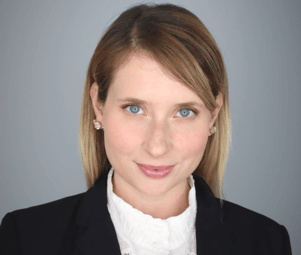
Laura Marciano
Research Associate at Harvard T.H. Chan School of Public Health, Lee Kum Sheung Center for Health and Happiness, USA and member of the advisory board of IBSA Foundation for scientific research, Switzerland
Laura Marciano is a Research Associate at the Harvard Chan T.H. School of Public Health (Boston, MA, USA), Department of Social and Behavioral Science, Lee Kum Sheung Center for Health and Happiness and IBSA Foundation advisory board. She is in charge of research projects on digital media and well-being, including the HappyB projects with data collected in Swiss and U.S. adolescents. Together with IBSA Foundation (Silvia Misiti) and USI (Prof. Peter J. Schulz), she is leading the Happiness2.0 science communication project, funded by the Swiss National Science Foundation (SNSF), to offer science-based communication activities to Ticino adolescents aged between 14 and 18, parents and stakeholders.
Happiness 2.0: social media use and well being in adolescence
By leveraging the results of the previous research, the SNSF funded “Happiness2.0 project” aims to offer science-based communication activities to teens living in Ticino, discussing how social media influence adolescents’ well-being over time, considering positive well-being indicators (e.g., happiness) and developmental processes like personality formation and need for social connections. During the presentation, the first part of the project's activities (carried out in Spring 2024) will be presented and discussed with the public. Project’s partners include Culture Division (City of Lugano), Rete Operativa, USI Equal Opportunites Service, all high schools principals, the Sezione dell'insegnamento medio superiore (SIMS), the Dipartimento dell’educazione, della cultura e dello sport (DECS), a parental committee, and the USI Institutional Communication Service.

Karen Guggenheim
CEO/Founder, WOHASU® & World Happiness Summit®, Wellbeing Advocate & Post Traumatic Growth Speaker, USA
Karen Guggenheim is a pioneer in the global happiness movement, a leader in promoting the science behind wellbeing at scale, and a motivational speaker inspiring people about how to grow post trauma and rebuild a life focused on meaning, purpose, and happiness. She is the creative force behind the World Happiness Summit®, the leading wellbeing conference promoting the benefits of an evidence-based approach to increase happiness in all areas of life, and the event that inspired a fast-growing movement. Karen is CEO of the wellbeing platform WOHASU, which organizes the Summit, and is author of Cultivating Happiness, board member of the World Wellbeing Movement and the founder of the World Wellbeing Policy Forum.
Cultivating Happiness at Scale: How an event launched a global movement
In an era of increasing complexity and challenges, Karen Guggenheim sheds light on the transformative power of cultivating wellbeing at scale. Karen will discuss the profound impact of the World Happiness Summit in fostering a global movement centered on positivity, community, happiness, and action.
She highlights the pivotal role of WOHASU in promoting the science behind happiness and wellbeing. By disseminating evidence-based practices and research findings, educators, policymakers, and business executives are empowered to integrate these into their respective domains.
Central to WOHASU's success is its emphasis on creating a vibrant community through in-person connection. Karen will share how face-to-face interactions are the cornerstone of genuine relationships, enabling participants to share experiences, insights, and strategies for promoting happiness practices in diverse contexts. She will discuss how a dynamic platform for continuous learning and innovation cultivated an environment conducive to exploration, experimentation, and collaboration that led to the creation of a movement.

Garth Graham
Healthcare and Public Health at Google/YouTube, USA
A cardiologist, researcher and public health expert, Garth is the Director and Global Head of Healthcare and Public Health at Google Health/YouTube. He previously served in two US administrations as US Deputy Assistant Secretary for Health, and was Assistant Dean for Health Policy and Chief of Health Services Research in the department of medicine at the University of Florida School of Medicine. He currently sits on several boards, including the Advisory Council to the Director of the NIH, the National Academy of Medicine Board on Health Policy, and the board of the National Quality Forum. An elected member of the National Academy of Medicine, Garth obtained his MD at Yale University School of Medicine, MPH at Yale School of Public Health, Internal Medicine at Massachusetts General Hospital and Cardiology fellowship at Johns Hopkins. He holds three board certifications including internal medicine, cardiology and interventional cardiology. He also holds an honorary doctorate of laws from Regis College and an honorary degree from the Eastern Virginia Medical School.
Information as a Determinant of Health
Technology has vastly changed the way people consume information, that shapes their day-to-day interactions and how they perceive themselves, their community and their own happiness and wellbeing. There is a determinant of health and happiness that has assumed an increasingly crucial role in the digital age: information. Information, which can be viewed as an independent determinant of health. This determinant influences happiness, stress and overall well-being. Technology platforms can facilitate the spread of information with faster and deeper engagement than traditional media sources. In this talk we will explore the challenges and benefits to the intersection of technology, information, happiness and related drivers for wellbeing.

Aurélie Litynski
Positive Work Culture Expert, Switzerland
Aurelie Litynski is a TEDx speaker, as well as a certified Chief Happiness and Chief Wellbeing Officer. In addition, she has received training from leading global experts and obtained multiple certifications in positive psychology, change management, neuroplasticity, emotional intelligence.
She draws on her extensive training and experience to develop workshops, programs, and keynote speeches focused on employee experience, positive leadership, emotional intelligence, and human-centric culture. Aurelie works with SMEs, multinational organizations, and corporate leaders all around the globe, empowering them to boost positivity, productivity, and performance in the workplace. Her overall mission? To foster a human-centric approach to work, where the teams' happiness is part of the teams' culture.
Making a Difference with Positive Leadership
Discover evidence-based strategies and practical tools that will empower you and your team to create a more positive, engaged, and productive work environment. Studies clearly show that leaders have a huge influence on employees’ well-being and performance. Leading with positivity, through the use of emotional intelligence and positive psychology, is a powerful tool for making a difference as both a colleague and a leader. Aurelie Litynski will empower you with a business-oriented approach that merges theoretical insights with real-world applications. By the end of this speech, you will not only be inspired and motivated but also equipped with a comprehensive toolkit of ideas and strategies for positive leadership, ready to transform your leadership approach and ignite transformative change in your organization.

Luigi Di Corato
Director of the Cultural Division of the City of Lugano, Switzerland
Luigi Maria Di Corato graduated with honors in art history from the University of Siena. He continued his education with a master’s degree in business administration at the MIP Politecnico di Milano and a postgraduate course in Management and Economics of Culture at the SDA Bocconi School of Management. He gained field experience in the management of major cultural projects, worked in international organizations, and directed important institutions characterized by public-private collaboration, such as Forte di Bard in Valle d’Aosta (from 2005 to 2006), Museo e Tesoro del Duomo di Monza (from 2007 to 2009), Fondazione Musei Senesi (from 2009 to 2014) and Fondazione Brescia Musei (from 2014 to 2018).
From 2003 to 2018, he was university lecturer in cultural management at the Faculty of Economics of the Catholic University in Milan; from 2017 to 2018, he was Chairman of the Strategic Plan Committee of ICOM, the international association of museums based in Paris. Since 2018 he has been Director of Cultural DIvision of the City of Lugano.
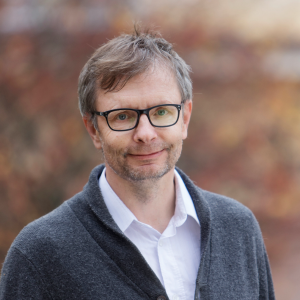
Heikki Hiilamo
Finnish Institute for Health and Welfare
PhD Heikki Hiilamo works as a research professor at Finnish Institute for Health and Welfare and as a professor of social policy at University of Helsinki. he Finnish Institute for Health and Welfare (THL) is an independent state-owned expert and research institute that promotes the welfare, health and safety of the population. THL’s duties are established in the Finnish legislation. A key duty is to carry out research and expert work to promote population health and wellbeing, prevent illnesses and social problems, develop the welfare society, support the social welfare & health care system and the social security system. Hiilamo’s research interests include economy of well-being, social security and comparative welfare state research.
Creating a Happy Nation: Finland’s Holistic Approach to Well-Being
Finland has consistently demonstrated its commitment to promoting well-being, securing the top spot on the World Happiness Report's annual ranking for seven consecutive years. This presentation highlights Finland's innovative approach to integrating well-being indicators into economic and public policy frameworks, moving beyond traditional GDP-based metrics. Initiated in 2019, Finland's strategy aligns with the Health in All Policies (HiAP) framework, incorporating happiness and well-being into national recovery strategies post-COVID-19. Central to this approach is Erik Allardt's "Having, Loving, Being" model, expanded to "Having, Doing, Loving, Being," to develop comprehensive well-being indicators. The presentation underscores the importance of subjective well-being measurements in policy-making, advocating for happiness as a key goal for social, economic, and ecological development. It also highlights Finland's efforts in promoting cross-sectoral collaboration, developing robust monitoring tools, and implementing mechanisms that prioritize citizens' well-being and happiness.
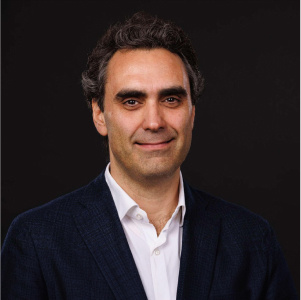
Andrea Alimonti
Director and head of the Molecular Oncology Group of the Institute of Oncology Research (IOR), full professor at Università della Svizzera italiana and ETH Zurich and member of Scientific Board of IBSA Foundation for scientific research, Switzerland
Prof. Alimonti received his MD degree from the University of Rome "La Sapienza" and his medical and training in oncology from the National Cancer Institute of Rome. He completed a postdoctoral fellowship in cancer biology first at Memorial Sloan-Kettering Cancer Center in New York and then at Harvard Medical School in Boston. In 2010 he joined the IOR, as head of the Molecular Oncology Group and in January 2024 he was appointed the new IOR Director. During his career, he has obtained important awards and competitive grants (EMBO Young Investigator, Swiss Bridge Award, ERC Starting, Consolidator and Advanced Grants, J. Steiner Cancer Research Award, Prostate Cancer Foundation Award, Award from the Benioff Initiative for Prostate Cancer Research). He is the author of many clinical and basic research publications in major scientific journals (e.g. Science, Nature, Cell, Nat. Gen etc).
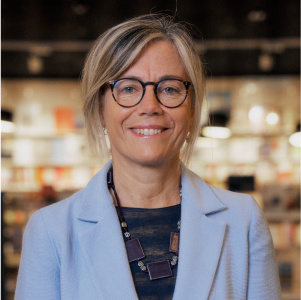
Silvia Misiti
Director of IBSA Foundation for scientific research, Switzerland
Silvia Misiti, MD PhD, started her career in 2001 as Assistant Professor in Endocrinology at Sapienza University of Rome.
In 2012 she moved to Lugano, where she directs the IBSA Foundation for scientific research, a non-profit foundation created by the pharmaceutical company IBSA Institut Biochimique SA. She is also Head of Corporate Communication at IBSA Group.
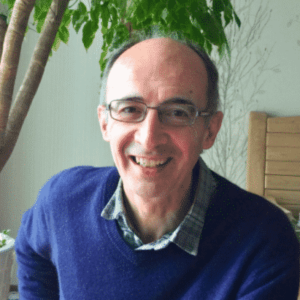
Mark Setton
CEO, Co-founder, Pursuit-of-Happiness.org, New York, USA
Mark K. Setton, D.Phil., is the CEO of Pursuit-of-Happiness.org. He has published numerous works on Asian philosophy and wellbeing. Obtaining an M.A. at Sungkyunkwan University, and his doctorate at Oxford University, he has taught at SUNY, UC Berkeley, and Oxford. Mark and his team design educational programs on the science of wellbeing for schools, universities, and corporations. He is especially interested in the resonance between modern science and ancient wisdom.
Is There More Than One Elephant in the Room? Biomedical Research on Wellbeing and Its Implications for the Workplace
Largely due to the groundbreaking work of psychologists such as Csikszentmihalyi and Seligman, research on wellbeing has traditionally focused on the social sciences, emphasizing relationships, character strengths, and positive emotions. Meanwhile, the field of wellbeing is rapidly drawing attention in the biomedical realm, especially among Asian scientists. This presentation discusses the topics attracting the most attention in this somewhat neglected realm. Join us as we examine how the latest biomedical research can revolutionize our approach to the pursuit of happiness, offering new strategies to enhance personal wellbeing and organizational effectiveness. Of particular significance for the corporate world are the implications of these new discoveries for the links between wellbeing, self-efficacy, and creativity. By addressing both “elephants in the room"— the dual perspectives of social science and natural science — we aim to take a more comprehensive approach to wellbeing.

Peter Schulz
Director of the Institute of Communication and Health at USI, Università della Svizzera italiana, Switzerland
Peter J. Schulz is Director of the Institute of Communication and Health at the University of Lugano, Switzerland and Professor of Communication Theories and Health Communication. In his work he has sought to bring together thinking from the humanities, social sciences, and information technology to investigate important issues in health communications. His recent work in the field of health communication research focuses on health literacy and empowerment, doctor-patient communication, and on media effects in the health domain such as the impact of Internet use on adolescents’ health. He has published more than 170 articles on health communication in a multitude of peer-reviewed publications. Together with Paul Cobley, London, he is an editor of the Series Handbooks of Communication Science (HoCS, 35 volumes, Berlin: DeGruyter & Mouton). Since 2017 he is also Honorary Professor at ANU (Australian National University, Canberra).
Final reflections
This final talk will summarize some of the major challenges that were presented and discussed in the previous presentations. What key points can we take away as a widely agreed consensus among participants? Which are the questions where we agree to disagree on? And which points indicate that more research is needed before reaching an agreement? The workshop has brought together both practitioners and academics. Where do practitioners and academics find common ground? And where do their paths diverge, or even oppose each other? In summarizing the main points that emerged during the Lugano Happiness Forum, the talk will also initiate a discussion about potential next steps.

Martijn Burger
Erasmus Happiness Economics Research Organisation, Erasmus University Rotterdam and Faculty of Management, Open University of the Netherlands, Netherlands
Martijn Burger is Academic Director at the Erasmus Happiness Economics Research Organisation (EHERO), Erasmus University Rotterdam and Professor of Happiness Economics in the Faculty of Management Studies at the Open University of the Netherlands. Most of his current research focuses on happiness economics and urban and regional economics, including geography of happiness, worker well-being, and institutional and social conditions for economic development and well-being. In addition, he is current president (2023-2024) of the International Society for Quality-of-Life Studies and coordinator of the EU Horizon project on Well-Being in a Sustainable Economy.
How can economic growth make us happy?

Urs Bieri
Chairman of the Executive Board and co-owner of the research institute gfs.bern ag, Bern, Switzerland
Urs Bieri studied political and media sciences at the Universities of Bern and Geneva. He has been researching opinion-forming processes on political and social issues at the gfs.bern research institute since 1996. Urs Bieri is a guest lecturer at the ZHAW Winterthur, at the KPM of the University of Bern and at the VMI of the University of Fribourg. He has been commenting on all national votes and elections for SRG's German-language radio channels since 2016.
How Direct Democracy and Material Well-Being Fuel Both political Satisfaction and Complacency in Switzerland
In Switzerland, with direct democracy at its core, the majority's satisfaction and well-being are pivotal political forces. Swiss citizens vote on new laws and constitutional amendments, carrying with them their personal values and daily experiences, both positive and negative. Results from two surveys indicate that direct democratic processes significantly boost people's satisfaction with the system. At the same time, the majority's satisfaction in Switzerland stems from the ability to maintain sustainable relationships without (experiencing) existential hardship and to enjoy individual freedoms without fearing worsening conditions in everyday life. Political issues in Switzerland are often discussed without any pressing problems or urgent deadlines, allowing for lengthy deliberations, particularly on substantial political reforms. Thus, high satisfaction contributes to political stability, but can simultaneously lead to complacency.

Randy Taran
Founder & CEO of projectHappiness.org, a global nonprofit based in California, USA
Randy Taran is the founder & CEO of projectHappiness.org, a global non-profit that creates emotional resilience programs for humans, any age. With a social media community of 2.4 million, Randy's mission is to empower people with the resources to CREATE greater happiness within themselves and the world. She’s co-author of the Project Happiness Handbook and author of Emotional Advantage: Embracing ALL Your Feelings to Create a Life You Love.
Happiness is Yours: Activating Personal and Collective Well-Being
When Randy’s own child was suffering from stress and depression, there were very few resources available, and certainly not to children or teens. This ignited a passion to share the best science-based resources to help others facing similar challenges. An award-winning documentary resulted with students from 3 countries interviewing George Lucas, Richard Gere, and neuroscientist Richard Davidson. The culmination was an audience with the Dalai Lama, where teens asked, “What is the nature of lasting happiness?” This led to a book, and a curriculum followed, downloaded in 120 countries.
Fast forward to the now accepted premise that happiness is not just a state; it’s a skillset we can all grow. This is reinforced daily on social media to our community of more than 2.4 million.
In this session, you’ll learn the 7 keys for a happier, more meaningful life, and how to use these to create personal and collective positive change. This is within reach, we need it, and it works. Let’s go!

Julia Hotz
Simon & Schuster (Author & Journalist), New York, UK
Julia Hotz is a journalist reporting on what’s working to help people live more joyful, meaningful and connected lives. Her stories have appeared in The New York Times, WIRED, Scientific American, The Boston Globe, Time magazine, and more. Her first book, The Connection Cure: The Prescriptive Power of Movement, Nature, Art, Service, and Belonging, is the world's first book to chronicle the science, the stories, and the worldwide spread of social prescribing.
After studying sociology at the University of Cambridge, she joined the Solutions Journalism Network, where she helps other journalists rigorously report on what’s working to solve today’s biggest problems.
A "Social Prescription" for Happiness: Building a Healthcare System Designed for Rediscovering Joy, Meaning, and Relationships
Traditionally, when we get sick, health care professionals ask, “What’s the matter with you?” But around the world, teams of doctors, nurses, therapists, and social workers have started to flip the script, asking “What matters to you?” Instead of solely pharmaceutical prescriptions, they offer ‘social prescriptions’—referrals to community activities and resources, like photography classes, gardening groups, and volunteering gigs.
The results speak for themselves. Science shows that social prescribing is effective for treating symptoms of the modern world’s most common ailments—depression, ADHD, addiction, trauma, anxiety, chronic pain, dementia, diabetes, and loneliness. As health care’s de facto cycle of “diagnose-treat-repeat” reaches a breaking point, social prescribing has also proven to reduce patient wait times, lower hospitalization rates, save money, and reverse health worker burnout. And as a general sense of unwellness plagues more of us, social prescriptions can help us feel healthier than we’ve felt in years.
In this presentation, Hotz will explore the key insights from her new book on social prescribing -- a practical way for people to reconnect with their own sense of joy, meaning, and relationships. She'll then walk audience members through an exercise in which they have the opportunity to reconnect with "what matters to them".

Micah Kaats
Harvard Kennedy School, USA

Caspar Kaiser
Warwick Business School & University of Oxford, USA

Leon Brudy
Business Development Manager Garmin Health, USA
Dr. Leon Brudy works as B2B Business Development Manager at Garmin Health where he is in charge of data-driven partnerships in research and clinical trials for the regions of Europe, Middle East, Africa and India. Previously he worked as research associate at the German Heart Center Munich and the Faculty of Sport and Health Sciences at the Technical University of Munich where he completed his clinical work with extensive publishing on physical activity, quality of life and cardiovascular risk in patients with congenital heart disease. Additionally, he holds academic degrees in Health Science, Political Science, and Economics.
Garmin Health in (Happiness) Research and Clinical Trials
Garmin Health integrates advanced wearable technology into research and clinical trials, enhancing corporate wellness, population health, and patient monitoring. Through the Garmin Health Connected Ecosystem, featuring the Garmin Connect Developer Program and Health SDKs various third-party solutions are enabled accessing a variety of data levels. Garmin's versatility as a fitness brand extends into health-related contexts by repurposing fitness metrics for health monitoring and analysis. This dual functionality supports a range of applications, from fitness tracking to critical health monitoring in clinical trials, illustrating Garmin's commitment to enhancing both personal wellness and scientific research through innovative technology. This presentation will focus on this versatility in the context of health and happiness research.

